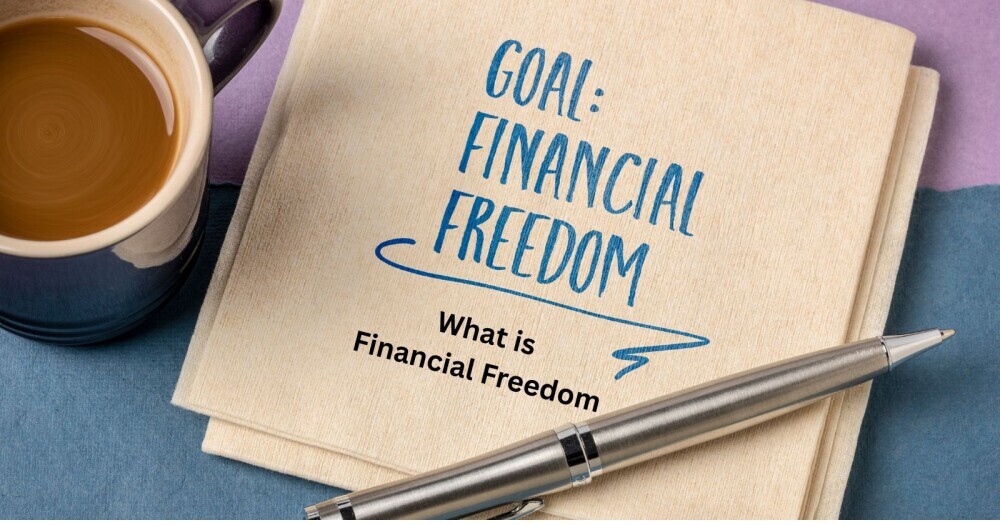So, what is financial freedom.
Well, financial freedom means different things to different folks, but at its core, it’s about having enough income to cover your living expenses for life without needing to be actively working. Picture not having to worry about bills while sipping your favorite drink on a sun-soaked beach—sounds relaxing, right?
It’s easy to romanticize financial freedom, but it’s crucial to steer clear of common myths. Some believe it’s about being rich or having piles of cash, but honestly, it’s more about choices. It’s about saying yes to experiences because you want to, not because you’re tied to a paycheck.

What Is Financial Freedom
Financial freedom isn’t a one-size-fits-all situation. For some, it might mean an early retirement; for others, it could be pursuing passion projects without financial stress. Whatever your vision, it’s about creating a life on your terms.
Having financial freedom goes hand-in-hand with happiness and satisfaction. When you’re not overwhelmed by financial stress, daily life naturally feels lighter. You end up focusing on what genuinely matters to you—whether that’s family, travel, hobbies, or simply living a chill life.
The Path to Financial Freedom
Getting on the road to financial freedom doesn’t have to be a complex juggling act. It starts with setting clear, realistic goals that give you a direction. Think of these goals as your financial GPS—without them, you could end up lost or stuck.
Budgeting is your trusty map on this journey. Keep track of every dollar you earn and spend. This helps you spot those sneaky expenses and save where it matters. It’s amazing what a difference knowing your financial landscape can make.
Long-term investments are like planting seeds for future growth. Whether we’re talking stocks, mutual funds, or real estate, understanding where and how to invest can help build your financial garden. Staying informed and patient pays off in the long run.
Debt can feel like a weight on your shoulders, but managing it wisely is essential. Tackle high-interest debts first and avoid taking on new ones unnecessarily. It’s a balance between using credit smartly and freeing yourself from its shackles.
Having an emergency fund is like carrying a financial safety net. Life’s full of surprises—some pleasant, others not so much. Being prepared for unexpected expenses keeps you from derailing your plans for independence.
Sustaining and Enjoying Your Success
So you’ve made it—you’re financially free! But how do you keep the momentum going? Adjusting your lifestyle to this new chapter is crucial. Living within your means isn’t just a stepping stone; it’s your baseline for continued freedom. Choose to splurge on experiences that align with your deepest values, not impulsive wants.
Balancing personal goals and family demands requires ongoing communication and planning. It’s not just about your own freedom; it’s about creating a supportive environment where everyone thrives. Consider what financial freedom means for the people you care about.
As you enjoy your financial freedom, there’s also room to think about giving back. Whether it’s through charitable donations or investing in community projects, responsible wealth management adds a layer of fulfillment to your life. Helping others on their paths doesn’t just help them; it enriches you as well.
The psychological upsides of financial freedom are rewarding. With less financial stress, you can focus more on personal growth. Opportunities for learning, exploration, and creativity are virtually limitless, fueling your sense of purpose and joy.
Staying informed is as vital as ever. Continued education, whether through reading, courses, or workshops, keeps you ahead and ready to adapt to future changes. By being proactive about your financial knowledge, sustaining this freedom becomes more manageable.
![]()
